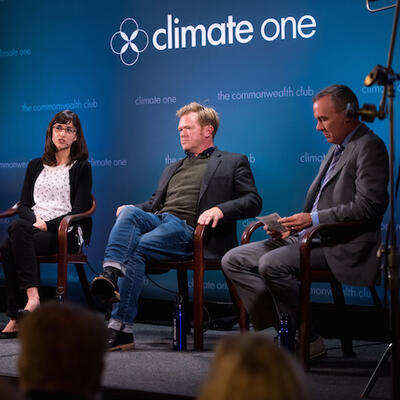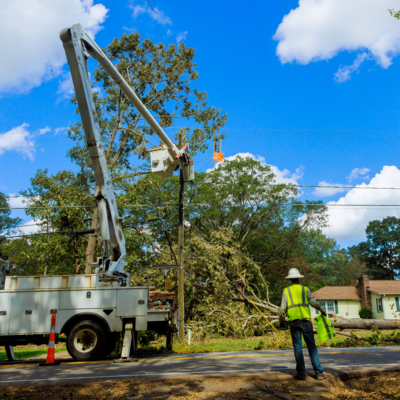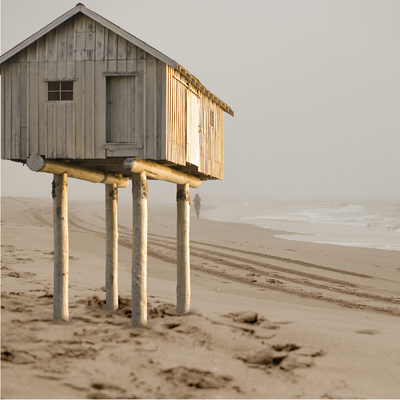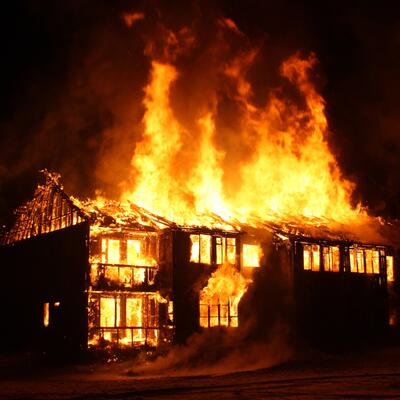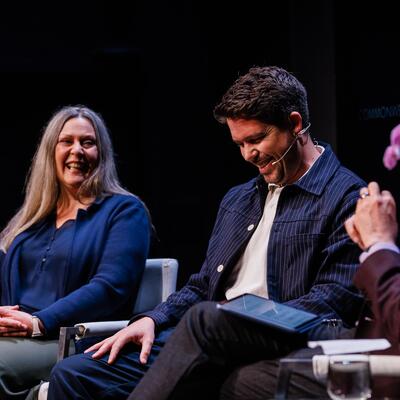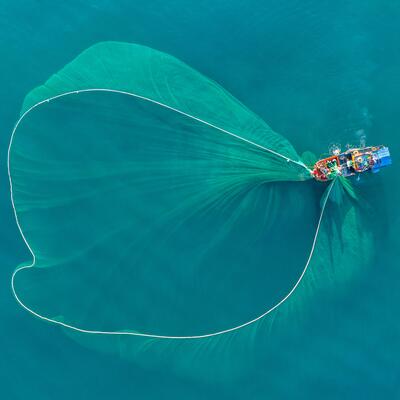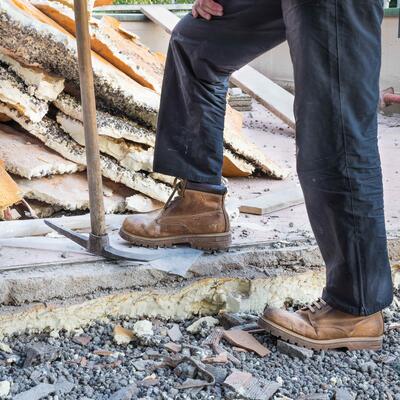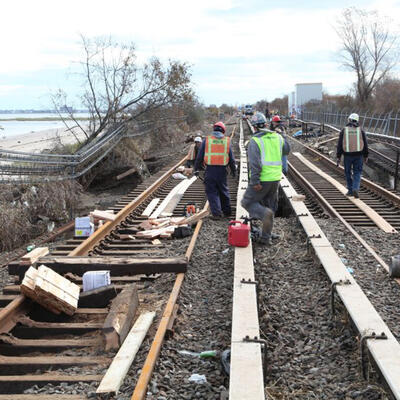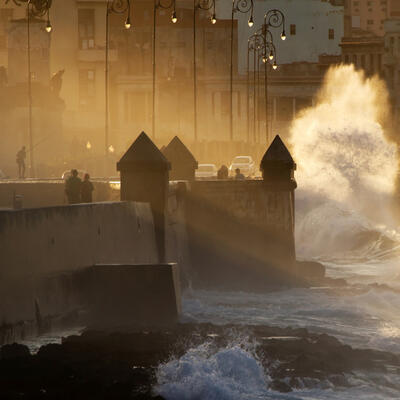
Two Hemispheres, One Story: Reporting on Rising Seas
Guests
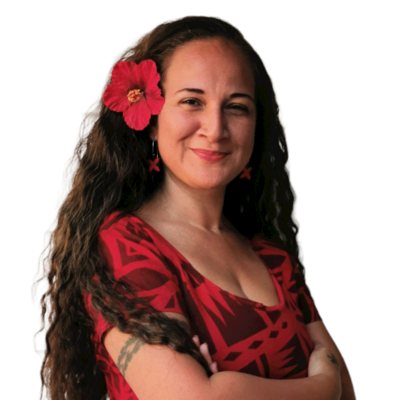
Lagipoiva Cherelle Jackson
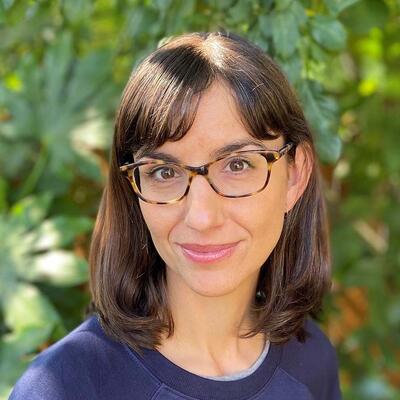
Lauren Sommer
Summary
An undeniable reality of the climate crisis is that poorer countries in the Global South are experiencing climate-induced disasters first and worst. That doesn’t mean that wealthier and whiter countries in the Global North are free from climate disruption. But wealthy countries have far more resources available to adapt and recover when disaster strikes.
In a collaboration with Covering Climate Now, we invited two award-winning journalists to share their reporting on climate change in their part of the world and how journalism can help bridge the disconnect between the industrialized north and developing south. Lauren Sommer is a correspondent for NPR, and Lagipoiva Cherelle Jackson is a reporter for the Guardian and host of the three-part podcast series An Impossible Choice, which won Covering Climate Now’s Journalism Award for Radio Podcast Series. Having grown up in Samoa, Jackson understands this global inequality all too well:
“Pacific Islands are only responsible for 0.03 of emissions globally yet stand to lose entire nations as a result of it. The responsibility lies in the Global North. And ultimately the role of the journalist is to really highlight these issues.”
Lauren Sommer sees the same injustices play out, even in the generally wealthy Bay Area., “I think the data is very clear. Disaster after disaster, people who have the means are able to put their lives back together. It's painful, but you know they can do it.”
Loss and Damage - the idea that the companies and countries most responsible for emitting climate changing pollutants should have to pay for the damages caused by climate disasters – is sure to be at the center of this year’s UN climate summit, known as COP27. Those in the most affected areas have been advocating for loss and damage payments for years. But Jackson believes that the ability to put those policies into practice is out of the hands of those in the Global South, “Unfortunately the decision-makers are not those who … have to pay for it in terms of lives lost, or identities lost, or islands lost.”
Both Jackson and Sommer hope their work might help the public understand that what’s happening to others around the world isn’t that different from what’s happening in many of their own communities. “As journalists, that's what we’re trying to share with the world, that maybe it's not you this time but it's a very good chance it could be you in the future, no matter where you live because these are becoming much more common events,” says Sommer.
Jackson agrees, “I love hearing Lauren’s reporting because I feel like the impact of the climate crisis has finally reached those with the means to do something about it.”
Related Links:
An Impossible Choice
What Can We Do About Rising Seas? East Palo Alto Has a Few Great Answers
Who Will Pay to Protect Tech Giants From Rising Seas?
Full Transcript
Note: Transcripts are generated using a combination of automated software and human transcribers, and may contain errors. Please check the actual audio before quoting it.
Greg Dalton: This is Climate One. I’m Greg Dalton. Twenty of the world’s richest countries – mostly in the Global North -- are responsible for 80 percent of the carbon pollution that’s driving extreme weather and supercharging natural disasters. Yet poorer countries in the Global South are experiencing climate-induced disasters first and worst. Wealthier and whiter countries in the Global North are being hit by climate disruption as well, but they also have more resources to adapt. This dichotomy underlies this year’s climate summit in Egypt, where loss and damage payments are expected to be a key focus.
In a collaboration with Covering Climate Now, we invited two award-winning journalists to discuss reporting on climate change in their part of the world and bridging the disconnect between the industrialized north and developing South. Lauren Sommer is a correspondent for NPR, and Lagipoiva Cherelle Jackson is a reporter for the Guardian and host of the three part podcast series An Impossible Choice.
The series explores climate disruption the Pacific Islanders are facing. This year it won Covering Climate Now’s Journalism Award for Radio Podcast Series. Jackson opens the first episode with a gripping personal story about delivering her child during a cyclone.
Lagipoiva Cherelle Jackson: Growing up in Savaii, Samoa cyclones and extreme weather events are very much a part of our lives and our existence. So, when I was brought on to host An Impossible Choice, I was asked to share my personal story like any journalist who wants to remain objective and just tell the story. I didn't necessarily want to share my story because I didn't feel that I should be part of the story. But in having conversations with my editors at the time, you know, they really did say well, actually you are part of the story and so you should be part of that narrative. So, even though it was hard for me professionally to center myself within the story I was very much aware that I was both a survivor and an eyewitness to the climate crisis in the Pacific. And then that's how my birth story came up of how my daughter was born in between storms in Samoa. And the fears that come as a new mother as you know, having a child for the first time and then a cyclone we just survived Cyclone Evan which you know displaced over 5000 people in our villages. And then another cyclone was due on the very evening that my daughter was born. So, to be able to tell that story and then hear from audiences how they resonated with it and also just connecting the fact that hardships, that lives of Pacific Islanders continue irrespective of the extreme weather events that people continue to live their lives even with the climate crisis and all of the issues that bring. So, it was, as a journalist, a very challenging time in centering myself in that story, but at the same time, it is the strongest piece of work I've ever done on climate change, and I used different approaches to try and reach international audiences on climate change. And this was a story that resonated: putting myself in it and telling the story of the people on the ground who are directly impacted by climate change and continue to be impacted by it. I really did make a difference.
Greg Dalton: And how have you experience climate change since then?
Lagipoiva Cherelle Jackson: Well, climate change is very much a part of our lives, you know, and extreme weather events such as intense cyclones flooding that something that happens on an annual basis. So, for us in Samoa, the change in the way that our livelihood options are available to us. So, seasonal crops variations have really impacted the way that we have access to food and have changed the diet. Storm surges have increased in coastal areas and then the availability of certain ocean-based food sources have also been a problem. So, this continues to be something that we deal with on a daily basis. Professionally going to town to do an interview and it be flooding is one of those, like immediate kind of climate change impacts that one experiences on the islands.
Greg Dalton: Thank you for sharing that. Lauren, you're in the Bay Area and produced an in-depth report on how communities here are preparing for future sea level rise. What does climate disruption feel like to you personally here living on the California coast?
Lauren Sommer: Yeah, I think it’s an interesting moment because obviously wildfires have gotten extreme, have affected many people in the West. But some of the decisions that people make every day are climate decisions and we don't always call them that. And I think where people are building where they live and decisions to build more in risky areas, those are all climate decisions, but they're happening in city councils they’re happening in kind of communities. And a lot of times aren’t kind of connecting the dots in those moments when they make those decisions about who's gonna be there in the future and might be at risk. And so, I think those are the types of stories I tend to gravitate to which is like we know a lot about the science now we know what sea level rise might do and who might be at risk and what the impacts might be. But is that really trickling down to the decisions we make every day that are gonna matter? I'm not sure it is.
Greg Dalton: Right. They’re kind of separated. Climate still in that far away future frame for a lot of people. Lauren, your work focused on the question of who should pay for climate resilience and protection, especially in a place where tech giants have established their headquarters. Tell us a little bit about what's at stake for the communities here like East Palo Alto and the wealthy ones nearby.
Lauren Sommer: Yeah, a particular story is kind of an interesting microcosm of this big question of fairness climate change. Like who should pay, who should pay for the damage that have been done and who should pay to protect people in the future. So, in particular, Menlo Park, which is in kind of in Silicon Valley in the Bay Area, you know, it has Facebook or Meta as it’s called now at their headquarters. They've spent a huge amount of money building a massive campus right on the waterfront there in an area where it's very clear that, you know, even by midcentury, there’ll be risk from storm surge and sea level rise. It’s also right next to East Palo Alto, one of the last kind of low-income communities of color kind of left in Silicon Valley, which is extremely expensive area to live. They are also right on the waterfront, they also need protection. And so, as the community in general is looking at what do we build do we build a levee do we build some sort of protection. This question of who should pay what's fair is really kind of it's coming up. It's causing a lot of tension in the community and it's kind of right on the forefront of like a lot of places haven't quite figured this out yet.
Greg Dalton: Right. And Cherelle, does that come up also in Samoa that, you know, what Lauren’s describing within one county basically is a microcosm for what's happening globally between the North and the South. Your reaction when you hear about these fights.
Lagipoiva Cherelle Jackson: It’s like the constant fight at climate negotiations. It's very interesting because among Pacific Island leaders and communities. Our cultures are not based on confrontation so it's very rare to hear a Pacific leader really confront the you know high emitting nations on the problem that they caused and were paying for. But what you do hear among Pacific Island leaders is accountability and the need to own up to their responsibility. And this is very much the case when we’re calling Australia to account for their role in the problem. My work has been focused internally on creating awareness among Pacific Islanders that it's not our fault. You know that this is the problem caused by others, and that our communities are suffering as a result. Because what you'll find and what you’ll hear especially if you’re listening in local languages is that Pacific Islanders some of them are taking this personally as our responsibility and our fault that the earth is suffering. So, it's very interesting that those who have done the least are also taking some responsibilities morally for what has happened and for the climate crisis.
Greg Dalton: Lauren, do you find that, you know, the sort of accountability recognition when you’re, we’re talking obviously a very different scales or we’re talking with Cherelle about a very human scale. And Lauren your work is with like zillion dollar corporations although run by humans, but are you hearing acknowledgments of accountability?
Lauren Sommer: Yeah, I think you know the project that they're trying to build there in that particular spot, you know, it’s gonna be expensive. I think the early cost estimates are probably underestimates. So, you have Meta-Facebook putting in some money and then East Palo Alto putting in almost exactly the same amount of money and then they’re hoping that the bulk of it is coming from the federal government to build it. And so, I think that's been a major source of tension, you know, and this kind of other question which is, you know, East Palo Alto, is a community that's been there a long time. Facebook is a place that built knowing that sea level rise was gonna be an issue more recently, and so that's where some of these tricky issues come in which is, is everyone on the waterfront equally responsible when you built, does that, you know, impact how much you should pay and how much risk you took on knowingly. That’s the really kind of thorny issues, especially if the costs you know end up being much more of an expected, which is happening with a lot of these huge climate adaptation projects right now.
Greg Dalton: What did you find, Lauren, among the people you talked with in terms of how they feel about these threats. I’m thinking about Mayor Carlos Romero, for example.
Lauren Sommer: Yeah, you know, he's been very outspoken that you know these companies kind of, they’ve come into these communities, you know, there are definitely been tensions about the way the communities have changed and the influence of gentrification as a result of kind of this kind of Silicon Valley boom. So, there was already kind of a little bit of history there. But he’s been very outspoken that you know they should be paying their way within their means which would mean he wants to see them do more than they’re doing right now. And I think he wants to see kind of more of a structure where if you're gonna build you’re gonna make a decision to build in a risky area that there's something baked in that you're taking responsibility whether it's a development fee whether it's more taxes whether it's something that’s gonna help pay for all this infrastructure in the future. But that's a really tough case to make for a lot of cities and communities because they want development, they want housing, they want jobs, they don't want to be doing things that discourage that type of development. And so, that's where the real tension comes in.
Greg Dalton: Cherelle, I know that it’s important to talk about Pacific Islanders not only as victims that there's leadership there's adaptation happening. In particular I'm interested in the former Tuvalu Prime Minister, Enele Sopoaga. Can you tell us his story and how he's seen as someone who came from that region and really made an impact and made people heard?
Lagipoiva Cherelle Jackson: Sure, Greg. Enele Sopoaga, former Prime Minister of Tuvalu is really one of these amazing - I like to call him a quiet hero because he's very humble and he's from one of the smaller atoll nations in the Pacific Islands. Like if you think Pacific Islands are small, Tuvalu is very small. And to have a leader from a country such as Tuvalu rise to the level of global leaders and stand side-by-side with US, UK, European leaders in the climate platform and in the climate negotiations, has really been quite inspiring. And that’s really driven from the fact that Enele Sopoaga is intrinsically or rather that his experience as a Pacific Islander in an atoll nation is really raw. Having grown up in Tuvalu and educated in Australia he not only intellectually understands the issue, but also has firsthand experience of the suffering that his people have gone through. For some context, Tuvalu experiences king tides annually. And king tides are basically an abnormal high tide which causes storm surges and because it's an atoll nation it floods the majority of the islands. And you'll see on an annual basis Tuvaluans holding up their like fridges holding up fridges holding up pigs holding up children so that they don't drown every time the waves hit. So, it's a normal occurrence for them except it's becoming frequent and it's becoming normalized. So, the fact that former Prime Minister Enele Sopoaga raised and brought a very key, he had a very key role in negotiating the Paris agreement, you know, is something that is not just monumental for the Pacific Islands, but globally. It's very significant to have, let’s be real here, a very insignificant country, an island, play a role in that way in negotiating one of the most significant agreements of our time on the climate crisis.
Greg Dalton: This is Climate One. I’m Greg Dalton.We’re speaking with journalists Lauren Sommer of NPR and Langipoiva Cherelle Jackson of the Guardian. In both their reporting, the people they speak with don't want to be forced to leave their homes, even when faced with increasingly dangerous conditions. Let's hear a bit of Lauren Sommer’s story of East Palo Alto residents Leia and Heleine Grewe, a mother and daughter who live in a flood zone and are concerned about losing their community because of climate disruption.
Lauren Sommer: Because they’ve seen how other disasters have hit communities of color, you know, like Hurricane Katrina in New Orleans. A lot of people were displaced and just didn’t return. And that’s Leia’s fear.
Leia Grewe: They'll move us out to, like - sorry. I didn't want to think about it. But we'll get moved out to, like, Stockton, Sacramento.
Greg Dalton: Lauren, what comes up for you when you hear that person, the Grewes, saying that and what they’re facing.
Lauren Sommer: Yeah, it’s very real for that family because their house is a kind of one of the first that you see before San Francisco Bay before all the water. And so, her daughter when she was in high school started learning about climate change and sea level rise and she was coming home and saying, mom, we gotta pay attention to this and got her mom involved. And their goal is really to get their community much more involved. You know, their family is from Tonga, there's a large Samoan population in East Palo Alto. There's a lot of people that really care about living there and being together and not being moved as she said. You know what she was talking about is you’re talking about two, you know, with traffic maybe three hours away from where they are right now where you can still find somewhat affordable housing in the Bay Area. So, it's not like they're moving to the town next door, you know, it would be a full displacement. And the communities already faced a lot of gentrification pressure with Silicon Valley growing the way it has. They have a lot of friends that have been priced out that have left the neighborhood, you know, or when their kids grew up they couldn't afford to live there, their parents. And so, I think they, you know, seeing kind of what happened with Hurricane Katrina where you just had so many people who are already kind of vulnerable or on the edge just not being able to kind of rebuild in place and have to move elsewhere. I think that's their fear is that one disaster one flood would be that thing that would be kind of the disruptive force that would kind of break their community apart.
Greg Dalton: And I’m curious, Lauren, when you’re reporting this, you know, talking about people in this very wealthy state and this very wealthy country being flooded out. Do you ever think about or did others mention Pacific Islanders or these small nation states their whole country are facing what you’re reporting on, on a neighborhood scale?
Lauren Sommer: Yeah, my colleagues at KQED in San Francisco did some reporting that was great, which was they spoke to someone in East Palo Alto who had come from Samoa and was very familiar with extreme storms and flooding. And in Palo Alto there have been floods already, especially when there's really intense rainstorms there's flooding kind of along this river in this Palo Alto. And so, the interview was fascinating because they'd move somewhere where they thought maybe that they were in different circumstances and they were like this is way too familiar that we’re dealing with this all over again.
Greg Dalton: We’ll play a clip of that and then we’ll get Cherelle to respond. So, this is KQED reporter Ezra David Romero talking with two Samoans in East Palo Alto.
Female Speaker: Anytime there’s a tsunami at home, all of our emotions rises.
Male Speaker: My wife has decided to leave because it’s too much. And then we come here to America and here it is --
Greg Dalton: He trails off there but they come here, it’s just the same thing they have been facing at home. Cherelle, your response to hearing, you know, people who leave Pacific islands, come to America and face the same thing.
Lagipoiva Cherelle Jackson: I was actually smiling at that soundbite because it's the way that one would translate. I could just hear that in Samoa they were like literally translating that in English and it's a really frustrating tone that they’re using. It’s like okay so we've moved the whole entire nation thinking that we’ll do better and yet here we are facing the same crisis. There is this perception that you know if you move to a developed country, you’ll be safer and you can seek refuge elsewhere. And I can just imagine that couple you know thinking okay we don't need to live on the beach anymore in Samoa and suffer this. This is the strongest way that we have captured the experiences of the climate crisis in Samoa in the Pacific is really speaking to the people who lived in coastal communities and are impacted directly whether it be their homes, you know, inundated or taken down because of cyclones or their livelihood options been impacted directly as a result of the climate crisis.
Greg Dalton: And Cherelle you say the choice whether to stay or leave is one of every Pacific Islander has to deal with whether now or in the future. And, you know, of course that’s difficult for anyone yet the connection to homeland is particularly strong in Samoa like the word per placenta and land I think are the same. And it’s tradition to bury that on your land, and when a family member passes they’re also buried on the property. So, can you tell us about for those who don't fully understand, most Americans don't have that kind of connection with land. We've lost that. Can you tell us a little more about your personal struggle in deciding whether to go or not in connection to that land.
Lagipoiva Cherelle Jackson: Well, all across Polynesia and in many Pacific cultures we are intrinsically tied to land as we say and, in the podcast, I do explain this. Fanua is the word for the placenta or the afterbirth and fanua is also the land itself. So, it's the same word and you'll see I think in Maori language it’s the same as well. So, across Polynesian cultures this is tied and culture and land and environments are very much tied, so without a healthy environment or an intact piece of land you also lose a lot of the languages and cultural references that we have. So, in the birth story of a Samoan, first the afterbirth is buried on your land marking where you stay and this is your ancestral land. And then the umbilical cord of the baby once it drops off is also buried on the land, usually with a tree. And then when you die you will also be buried on that land and you'll often find in Samoa and in other Pacific Island countries that we sometimes bury our dead in our homes because the homes are open, you'll see like graves within the front porch of the house. Because we’re still related, we’re still very much a part of the family whether or not you died a hundred years ago 50 years ago or yesterday. That people are still very much a part of that land. Now where this becomes a climate story is that for atoll nations such as Marshall Islands, Kiribati, Tuvalu, Tokelau, when they are forced to leave because there will be no more land or it’s fully submerged or it's no longer inhabitable. You cannot just up and leave a piece of land as you would say in the states in the US where you’re like okay, I'm in apartment here I own a home I can go buy a home somewhere else. No, this is something that your ancestors grew up in, you’re born into this land, your children, your children's children are supposed to be on this land forever, irrespective of where you go in the world. For my children they will always have land in my home village. Our ancestral land that we will always go back to. Like infinity and beyond. Like it's always going to be there. So, to then say to a Pacific Islander this is no longer yours because the ocean has taken over. That's essentially saying cutting off it's almost saying you’re cutting off the rest of their lineage. And lineage is very much a part of our upbringing. So, the way that we frame this podcast is to really to ask those hard questions of the people that do stand to lose their entire nations. I’ve interviewed communities in Fiji where the whole villages were wiped out by Cyclone Winston in 2016. And they’re like, yeah, we’re gonna rebuild right here, which ties to Lauren's point of you do have some responsibility on where you build; it's a climate decision. But when it comes to islands and you don't have any other choice of location you rebuild there because culturally that's where you are and where you will always be. It’s almost in a sense it's not even a choice; you just stay.
Greg Dalton: And Lauren, in your reporting there's other forces at work more commerce than culture. There’s a central tension between cities that you write about that want development and tax revenue. Yet, they’re on the hook for protecting those developments from rising waters and lack the resources to pay for that. Can you share some of what you learned about these decisions with big tech firms, Google, Facebook, in terms of how that's playing out for them shaping their decisions about where they’re locating and how long they’re staying there.
Lauren Sommer: Yeah, a good example I reported on was down a little bit further down San Francisco Bay in a town called Sunnyvale. And that’s a spot where Google has bought a huge number of properties just in recent years. So, they bought this big area of parcels just right on the water and it's an area that the city is really interested in having development. And Google is very interested in developing more sustainably. So, more walkable neighborhoods, more green spaces, more housing because obviously housing is a huge demand in the Bay Area. But of course, it's right on the shoreline. it's protected by a levee that you know is not adequate. It's not up to federal standards, it would not protect that area. And so, there's a real kind of conundrum which is like well okay do we let people put housing there and people who will live there before a new levee would be built because it's you know it's extremely long and expensive process to get these big projects built. Do we let people live there before we know it's protected? Do we wait till a project like that is built before we let them come in. I mean, that's a really tough call in a place where housing is in such short supply. But, you know, like once something is there it’s really hard to undo. Like if you pour concrete and put homes there and those decisions last you know, decades, centuries. And so, that moment that that decision is made is really important when it comes to climate change.
Greg Dalton: And one of the people, A.R. Siders says this behavior is kind of foolish, putting people at risk.
Lauren Sommer: Yeah, I mean she kind of in her research has really looked at you know this kind of pattern where we keep growing and expanding into risky areas. And then the really tough choices of what do you do in those communities if people do need to move. And so, I think you know from her point of view if you don't have to think about managed retreat as it's called, right, of actually having to relocate people and buy them out or find new places to live like that's the best case scenario, you can avoid those tough decisions by not building homes there in the first place, with what we know today.
Greg Dalton: Cherelle, I’m wondering just hearing these stories of a place that you know the states, you were in the states recently. How you view these kinds of conversations compared to when the resource disparity is so great.
Lagipoiva Cherelle Jackson: I love hearing Lauren’s reporting because I feel like that's the impact of the climate crisis have finally reached those with the means to do something about it. And then the impacts of reaching those with means, means that they'll finally understand the plight of Pacific Islanders. And it's sad that it takes a firsthand experience of you know, the West and of the Global North for them to understand what Pacific Islanders have been going through for many, many years and have been trying to raise attention to it.
Greg Dalton: It’s interesting because, you know, fascinating your reporting with worlds apart and yet there’s an interesting strand that connect them. Some of the onset is fast, some of it slow. There's a lot of wealth there's less material wealth a lot of cultural wealth. Cherelle, your reporting covers some of the day-to-day struggles of Pacific Islanders already facing because of warming temperatures. In particular you share the story of Vanessa, your friend, who experienced sudden flooding during a storm when a wall of water rushed down around their house where she lived and her husband and four kids. Let’s hear a bit of that story.
Vanessa: So, my husband, he said to me, get the kids, get the kids grab the kids. And I quickly ran in; he came as well. And my baby was sitting on the toilet at that time. I grabbed him by the shirt and he didn’t even have time to pull his undies up because the water was already rising, it was getting to our knees. So, by the time we got out of the house, we were already struggling. That’s how quick the water came.
Lagipoiva Cherelle Jackson: Their first plan was to get in the car and drive to safety. But once outside they realized the car had been washed away. The water was rapidly rising.
Vanessa: We’re already struggling. I had two kids with me, both hands, we have two kids. And there was a point where we were looking at each other like we’re struggling. Are we going to make a decision to let one of them go. At one point we didn’t really have the choice. The water was really strong and it’s hard to hold on with our hands with the kids, all of us would be gone. So, it was the most scariest day ever.
Greg Dalton: Thankfully they all survived there. But that just gives me chills, Cherelle and Lauren, as a parent thinking about having to let go one of your children or to hold on or else the whole family might go under. How did you deal with hearing that and also the aftereffects of these experiences?
Lagipoiva Cherelle Jackson: Vanessa’s story is one of the most heartbreaking I ever had to report on. As a mother and her village was five villages away from mine, you know, and her children are around the same age as mine. So, to hear her say, well there was this point where I was gonna have to choose which kid to carry up it stays with you. And the thing with Vanessa’s story is it's one of many stories. It's just one story and it doesn't belittle it, but what it does do is it really elevates the fact that there are people who continue to face these existential issues in the Pacific and on a regular basis. I have reported on these issues for many, many years and to hear Vanessa’s story is to really hear about the climate crisis on the ground. And I want to go back to the issue of resources and the disparity between how the poor and how the rich experience climate change. For this particular story Vanessa and her husband owned a business. There were two buildings. They could climb up and save themselves. Eventually they did, thankfully, on top of the warehouse that they owned. Everything was gone and wiped away. But what of the families who didn't have that? And many throughout the years have died because you had no place to go when your home is wiped. So, it is something that as a journalist we do need to look into further – the disparity between the experiences that those with the means have and those without the means. Because when a wealthy person suffers climate, they can build higher. They can build somewhere else. They can afford the Metas and the Googles can do this. The Tuvalus and the Tokelaus they have no choice. They cannot build a new island. They cannot afford to do that. So, this experience of climate change when you have the means to save yourself afterwards is so very different to the plight of Pacific Islands where you just simply don't have the land or the resources to continue having the life that you've always wanted to lead as a Pacific Islander. Now, I just like to share the story of how you know I have survived many cyclones in the past, but the most recent cyclone, Cyclone Evan. My mom and I were in my house in town which is on stilts. And I remember the first day of the cyclone my mother saying, my mom is a high chief and she survived a whole lot of stuff growing up. And she said, it's very quiet, like the cyclone is very quiet. And I’m like what do you mean? She said you don't hear the sound of the wind and that's because the house is a western styled house it had walls, windows, doors. It was well protected. But our earlier experiences of cyclones were in open valleys, traditional huts, and you hear the wind it's like right in your face and you have no choice. So, for me that was like this picture of how you know resources can protect you from extreme weather events. And that's really for me very interesting to hear Lauren’s reporting compared to how I've reported as well. And that disparity between those with the means and without.
Lauren Sommer: And that’s, I mean those stories you know, I mean I live in California. I've lived here a long time and covering wildfires 10 years ago. I would be so surprised when I would need a family that had to evacuate quickly, you know, I would be really shocked. Covering the wildfires in the last few years I barely even have to have one conversation before I hear a really harrowing scary story about family, you know, let’s say two summers ago, yeah, a family who like they once take both their cars they threw their kids in one, they were had to have their kids like huddle in the center of the car because the flames were so hot on the sides of the road that they were getting burned through the windows as they were trying to escape. And it’s, you know, I think as journalists, like that's what we’re trying to share with the world that you know maybe it's not you this time but it's a very good chance it could be you in the future, no matter where you live because these are becoming much more common events for many parts of the world.
Greg Dalton: This is Climate One. I’m Greg Dalton. Living through climate disasters is becoming increasingly common across the globe. Beyond physical and property harm, surviving them can take a toll on mental and emotional health. In some cultures, the language for trauma as we think of it doesn’t really exist. Lagipoiva Cherelle Jackson helps us understand how trauma is processed in her culture.
Lagipoiva Cherelle Jackson: We don't have a word for trauma in Samoan in a way that translates to the way we deal with trauma in that we deal with it with humor. And which is very intriguing when you're covering climate change and you're trying to relay the seriousness of the situation, you know, internationally --
Greg Dalton: You have some really dark climate jokes?
Lagipoiva Cherelle Jackson: So dark. So dark that inappropriate when translated into English. So, as a journalist from the islands straddling that divide between how my local audience has received climate change news with international audiences is always been quite intriguing because I know that when I translate to English and I report say previously for The Guardian that, no, I shouldn't be mentioning the funny story of my uncle hanging onto the roof of the house while trying to hold his skirt on and how that has always been hilarious for us. But when you're writing for an international audience who should be sympathizing or who should be made to be aware of the seriousness of the situation, relaying those humorous stories is not necessarily the best way to report the climate story from the Pacific. So, it's very interesting and that really ties to the issue of trauma. And I've done some work with the Dart Center for Journalism and Trauma. We brought them into Samoa to talk to journalists who are reporting on climate change and extreme weather events. And just because we don't acknowledge it culturally nor do we have the language to relay what trauma is or understand it, doesn't mean it's not happening. Because journalists who cover climate stories who are first on site who are there with the first responders do experience a lot of trauma anywhere in the world. And so, dealing with that means that we can, you know, assist journalists in better reporting and perhaps even having a more hopeful lenses in reporting on climate change.
Greg Dalton: How was that related to the language and culture around race, and the sense of self?
Lagipoiva Cherelle Jackson: So, in Samoa and again in many Pacific Island countries, the self is we and the self is collective. It's not about you it's about your family, your village or community. So, you'll find that the experience of climate change is not about the individual losses but rather the collective losses. And that's really why this issue is so severe for the Pacific, culturally, and as communities and as families because the loss is not choked up to one family. It is the loss of the whole community. And with that is kind of like I guess in American's terms; it would be like institutional knowledge. So, it's the historical oral history and everything that comes with it. It's the collective. So, trauma is experienced not just by the self, but also collectively as a family. Your experience as one person reflects on your family. So, if one family is experiencing, flooding, or they lose . Their home. We consider that a loss of by the entire village.
Greg Dalton: So, we've been talking about this on so many different levels. And as we’re at this moment, looking ahead for COP 27 in Egypt, loss and damage who pays is a big part of the conversation as it always is. So, I’m curious about this particular moment we’re having increasing awareness, increasing experience of these climate impacts. How you work and help frame the conversation around who pays equity and justice both within neighborhoods and globally. Lauren.
Lauren Sommer: Yeah, I think coming into this COP, I mean just look at what’s happened this summer alone. You got the flooding in Pakistan. You've got heatwaves in India. The number of just really incredible devastation that’s happened recently. these aren’t just one offs anymore, you know, like and this is billions of dollars that it's gonna take for people to rebuild. So, I think yeah, this is going to be an interesting COP potentially because obviously last year there was a ton of frustration over loss and damage. You had a lot of, you know, countries coming forward saying like we can’t keep ignoring this. This is something that every single year starting to happen.
Greg Dalton: Lauren, you covered Mia Mottley’s gripping speech from last year's conference.
Lauren Sommer: Yeah. And I think the momentum has built even since then, about what are the ways that countries can actually make this a reality. You know there's a lot of countries that are really have a huge amount of debt as a result of disasters and other things, right. Is it kind of a debt forgiveness mechanism is what she's bringing up to say that's how you could help countries deal with these kinds of damages and damages going forward. So, there’s a lot of frustration because there is a lot of reticence on the part of richer countries to take on anything that looks like liability to say like, it’s our fault and that maybe they feel like would open the door to more and more costs in the future. So, it’ll be interesting to see what kind of progress is made. I think it really is gonna be the flash point of this COP is what I think is gonna happen.
Greg Dalton: Cherelle, your thoughts on going into COP 27 in Egypt with this issue of pay equity and loss and damage.
Lagipoiva Cherelle Jackson: Pacific Island leaders have been bringing up this issue for many, many years and it's made very little advancement at the negotiations. Loss and damage ultimately is a conversation that has to unfortunately the decision-makers are not those who are, you know, have to pay for it in terms of lives lost or identities lost or islands lost. So, in a way it continues to be a disempowering conversation for Pacific Islanders because they are not necessarily the ones who have the sway in the poll to advance the conversation in loss and damage. You know, ultimately, the Global North and high emitting countries do have to own up their responsibility but as we all know that blockades and you know they will continue to block this. So, a lot of Pacific Island negotiators are not hopeful moving into COP 27 that there will be much change but it doesn't mean that they go in without hope. Pacific Island negotiators met just last week as part of the preparatory meeting towards COP 27 where Pacific Island negotiators come together to consolidate their joint oppositions moving into COP 27. And you know this is it continues to be an issue for the Pacific and it feels like a long, long road ahead before anything is done for Pacific Island Nations in the climate front on loss and damage.
Greg Dalton: Covering climate now is a collaboration of over 460 news and media partners aimed at driving a public conversation that creates an engaged public. And we’re collaborating with Covering Climate Now in producing this episode. As we draw to a close here, I’d like to think about how your work centers on power and equity at the core of your reporting and how you try to bring that out and how you think about power and equity in your telling of these climate stories as they unfold.
Lauren Sommer: I mean I think the data is very clear disaster after disaster people who have the means you know are able to put their lives back together. It's painful, but you know they can do it. The folks that don't have the means, don't have the insurance, didn't have savings that didn't have the kind of like social structure around them to kind of rebuild and stuff. It's very clear that the kind of devastating impact these disasters have. Like we see it over and over and over with disasters. And so, I think you know that's kind of the thread of every climate story now that I try to do, right, is whatever inequity already existed and whatever part of society you’re looking at. I mean climate change is the added layer that's gonna make it worse.
Greg Dalton: Right. And Cherelle, your thoughts on that and also the potential for collaboration. You’ve spoken eloquently about the collective and is there a need for more collaboration in climate reporting and media where there tends to be kind of competitive in spirit.
Lagipoiva Cherelle Jackson: So, in the Pacific media we’re not necessarily competitive, we're very collaborative naturally. It’s when we veer into international media that it becomes a dog eat dog world as I unfortunately experienced. So, first of all I just want to mention that covering climate now has been a game changer for climate journalism globally and they have not only elevated climate change as a news beat in the US but also globally. I have a small news organization in Samoa that has benefited from the content shared by Covering Climate Now. That collaboration that spirit of sharing free content of highlighting stories from under covered areas is key in not just understanding climate crisis as a global issue, but also increasing the capacity of journalists in the Global South and then also the exchange between Global North and Global South journalists. On the issue of equity, I want to talk about the responsibility. Pacific Islands are only responsible for 0.03 of emissions globally yet stand to lose entire nations as a result of it. The responsibility lies in Global North. And ultimately the role of the journalist is really highlighting these issues, highlight the fact that you know there are those who are responsible and those who are paying for it who are suffering as a result of it. So, to come back to the issue of the value of climate journalism in highlighting these issues, Covering Climate Now has been instrumental in changing that.
Greg Dalton: Thank you. And I should also mention that Cherelle, your reporting won in the category of radio podcast series for the Covering Climate Now journalism words. And Lauren’s reporting earned recognition as a finalist. So, congratulations to both of you on that. So, as we wrap here how are you personally navigating the stay or go? I have personal impulses of like moving from the Bay Area moving north then I’m like okay calm down, Greg. How do you personally navigate that, Cherelle, you’re laughing so I’ll go with you first.
Lagipoiva Cherelle Jackson: I laughed at the calm down, Greg, reference. Okay. So, for me personally, I will never leave my land. My family will never leave the land. We will stay there because the bones of my mother, my father, of my ancestors are there. So, we’ll sink with it. At the same time, I do have children who want to make a difference in the world. So, realistically speaking, there should still be a future that’s secured for them, whether it be in Samoa or in the developed country where they may be safer on higher ground.
Greg Dalton: Lauren, when you're doing your reporting do you ever have thoughts of like, oh, I got to get out of here while I can.
Lauren Sommer: I mean, yes, I always like to look at maps of California because if you map the wildfire and the flood and all the disaster and drought I don't know where you would go necessary to avoid it completely. But no, I think I mean I honestly do think a lot about there’s so many people living in places that’s gonna be hit with something whether it's a flood or a fire. And the thing I think most about is evacuation, honestly. Like people have to be able to get out safely and that's the thing we all need to work on in addition to, you know, the decisions that are tough building decisions in the future.
Greg Dalton: Lauren Sommer is a correspondent for NPR. And Lagipoiva Cherelle Jackson is the Climate Collaborations Editor for the Associated Press and host of the Impossible Choice podcast for The Guardian. Thank you so much for sharing your stories and the people you've talked to.
Lagipoiva Cherelle Jackson: Thank you, Greg.
Lauren Sommer: Yeah, thanks for having me.
Greg Dalton: On this Climate One... We’ve been talking about sharing the stories of those affected by the climate crisis in the Global North and South. Lagipoiva Cherelle Jackson’s series An Impossible Choice won Covering Climate Now’s Journalism Award for Radio Podcast Series. It will be featured in Burning Questions: Covering Climate Now premiering October 25th on public television's WORLD channel.
Climate One’s empowering conversations connect all aspects of the climate emergency. To hear more, subscribe to our podcast on Apple or wherever you get your pods.Talking about climate can be hard-- but it’s critical to address the transitions we need to make in all parts of society. Please help us get people talking more about climate by giving us a rating or review if you are listening on Apple. You can do it right now on your device. You can also help by sending a link to this episode to a friend. By sharing you can help people have their own deeper climate conversations.
Brad Marshland is our senior producer; Our managing director is Jenny Park. Our producers and audio editors are Ariana Brocious and Austin Colón. Megan Biscieglia is our production manager. Our team also includes consulting producer Sara-Katherine Coxon. Our theme music was composed by George Young (and arranged by Matt Willcox). Gloria Duffy is CEO of The Commonwealth Club of California, the nonprofit and nonpartisan forum where our program originates. I’m Greg Dalton.
